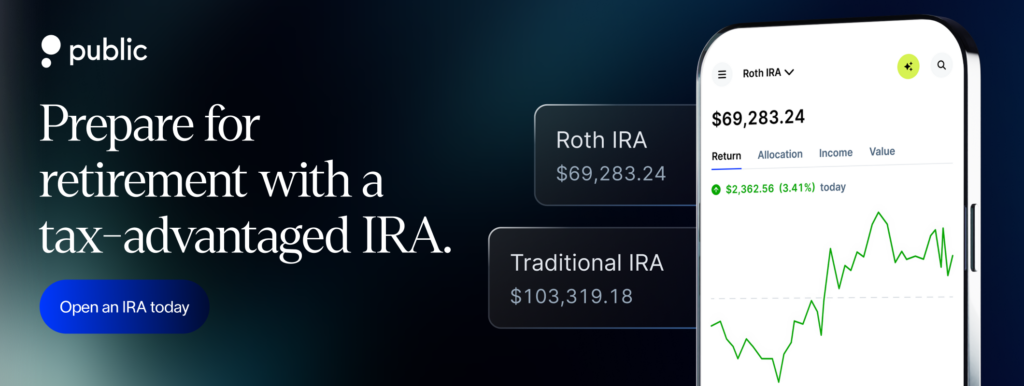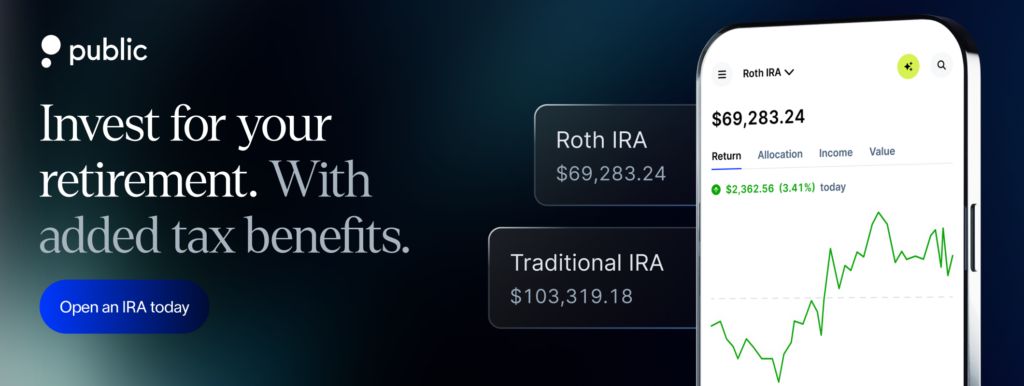When you open a Traditional IRA, you’re choosing a retirement account that comes with tax-deferred growth, but also a set of specific rules when it’s time to take money out. Whether you’re approaching retirement or just planning ahead, it’s essential to understand how Traditional IRA withdrawals work.
From age-based rules to early withdrawal penalties and required minimum distributions (RMDs), this guide helps you get a clear picture of the rules around withdrawing funds from a traditional IRA.
When can you withdraw from a traditional IRA?
You can withdraw funds from your Traditional IRA at any time, but you might face taxes and penalties depending on your age and circumstances.
Withdrawals are subject to income tax and, in some cases, an additional early withdrawal penalty. “Qualified” withdrawals (those that avoid penalties) depend mostly on your age or applicable exceptions.
1. Withdrawing before age 59½: Early withdrawal rules
If you withdraw money from your traditional IRA before you reach age 59½, the IRS considers this an “early” or “premature” distribution. You’ll generally pay:
- 10% Early Withdrawal Penalty: Most early withdrawals are subject to a 10% federal penalty, in addition to ordinary income tax.
- State Taxes: Some states may also impose additional penalties.
- Taxable Income: The amount withdrawn is added to your taxable income for the year.
Example: Suppose you’re 45 years old and withdraw $10,000 from your traditional IRA. You’ll owe ordinary income tax on the $10,000, plus a $1,000 penalty (10% of $10,000), unless you qualify for an exception.
Exceptions to the 10% penalty
There are several exceptions to the 10% early withdrawal penalty. If your withdrawal meets certain criteria, you may avoid the penalty, though you’ll still owe income tax on the amount withdrawn. Here are the most common exceptions for 2025.
Examples of early withdrawal scenarios
- Example 1: You’re 35 and want to buy your first home. You can withdraw up to $10,000 from your Traditional IRA without the 10% penalty, but you’ll still owe income tax on the amount.
- Example 2: You’re 45 and unemployed for 14 weeks. You use IRA funds to pay for health insurance premiums. This withdrawal is exempt from the penalty, but not from income tax.
- Example 3: You’re 50 and need to pay for your child’s college tuition. You can use IRA funds for qualified education expenses without the penalty.
2. Withdrawing after age 59½ : No early withdrawal penalty
Once you reach age 59½, you can withdraw any amount from your Traditional IRA for any reason without incurring the 10% early withdrawal penalty. However, all withdrawals are taxed as ordinary income.
Example: If you withdraw $20,000 at age 61, and your ordinary income tax rate is 22%, you may owe around $4,400 in federal income tax.
- You are not required to take distributions at this age. You can leave your money in the account to continue growing tax-deferred until you reach the RMD age.
- Example: At age 60, you decide to take out $20,000 to travel. You’ll pay income tax on the withdrawal, but no penalty applies
3. Required minimum distributions (RMDs): Updated for 2025
One of the most essential rules for Traditional IRA withdrawals involves RMDs (Required Minimum Distributions).
What are RMDs?
Required Minimum Distributions (RMDs) are the minimum amounts you must withdraw from your traditional IRA each year once you reach a certain age. The IRS requires these withdrawals so that tax-deferred funds eventually become taxable.
When do RMDs start?
If you turn 73 in 2025: You must take your first RMD by April 1, 2026.
If you turned 73 in 2024: Your first RMD is due by April 1, 2025, and your second by December 31, 2025
What happens if you miss an RMD?
Failing to take the full RMD can trigger an excise tax penalty of 25% of the amount not withdrawn, reduced to 10% if corrected in a timely manner (within two years)
Example: If your RMD for 2025 is $12,000 and you only withdraw $6,000, you may owe up to $1,500 in penalties unless you correct it quickly.
How are RMDs calculated?
Your RMD is calculated by dividing your IRA balance as of December 31 of the previous year by a life expectancy factor from IRS tables. The most common table is the Uniform Lifetime Table.
Example: If you’re 75 and your IRA balance was $200,000 on December 31, 2024, and the IRS factor for age 75 is 24.6, your RMD for 2025 would be:
RMD = 200,000 / 24.6 ≈ $8,130.08
Can you withdraw more than the RMD?
Yes, you can always withdraw more than the minimum required amount, but all withdrawals are taxed as income.
Want to get more out of your traditional IRA?
If you’re planning to open or manage a Traditional IRA, the platform you use can affect how you contribute, invest, and monitor your account over time. Public.com offers an IRA experience designed to support long-term savers like you, without adding complexity.
Here’s how Public’s IRA Triple Power works:
Up to 3% in total value opportunities:
- 1% IRA match on annual contributions
- Up to $10,000 rollover bonus when you bring over an existing IRA or 401(k)
- Smart investing access to stocks, ETFs, Treasuries all from one place
You can explore these features and see if they align with your goals at Public.com.
Note: IRA matches and rollover bonuses are subject to terms and conditions. They don’t affect Traditional IRA withdrawal rules, but they may help you add value while you save.
Conclusion
Traditional IRA withdrawal rules can feel complex, but once you break them down by age, tax implications, and exceptions, the picture becomes much clearer. Whether you’re preparing for RMDs, considering early withdrawals, or simply planning your retirement income, staying informed might help you make confident, tax-aware decisions.



